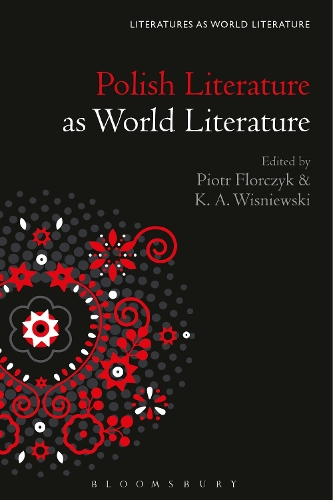
Polish Literature as World Literature
(Paperback)
Available Formats
Publishing Details
Polish Literature as World Literature
By (Author) Dr. Piotr Florczyk
Edited by Dr. K. A. Wisniewski
Bloomsbury Publishing PLC
Bloomsbury Academic USA
25th July 2024
United States
Classifications
Professional and Scholarly
Non Fiction
Literary theory
891.8/509
Physical Properties
Paperback
262
Width 152mm, Height 229mm
Description
This carefully curated collection consists of 16 chapters by leading Polish and world literature scholars from the United States, Canada, Italy, and, of course, Poland. An historical approach gives readers a panoramic view of Polish authors and their explicit or implicit contributions to world literature. Indeed, the volume shows how Polish authors, from Jan Kochanowski in the 16th century to the 2018 Nobel laureate Olga Tokarczuk, have engaged with their foreign counterparts and other traditions, active participants in the global literary network and the conversations of their day. The volume features views of Polish literature and culture within theories of world literature and literary systems, with a particular attention paid to the resurgence of the idea of the physical book as a cultural artifact. This perspective is especially important since so much of todays global literary output stems from Anglophone perceptions of what constitutes literary quality and tastes. The collection also sheds light on specific issues pertaining to Poland, such as the idea of Polishness, and global phenomena, including social and economic advancement as well as ecological degradation. Some of the authors discussed, like the Romantic poet Adam Mickiewicz or the 1980 Nobel laureate Czeslaw Milosz, were renowned far beyond the borders of their country, while others, like the contemporary travel writer and novelist Andrzej Stasiuk, embrace regionalism, seeing as they do in their immediate surroundings a synecdoche of the world at large. Nevertheless, the picture of Polish literature and Polish authors that emerges from these articles is that of a diverse, cosmopolitan cohort engaged in a mutually rewarding relationship with what the late French critic Pascale Casanova has called the world republic of letters.
Reviews
The book is full of new insights into the major authors and phenomena of modern and contemporary Polish literature and is a valuable source of inspiration for scholars of world literature and for scholars of Polish literature: for the former it provides synecdochs, for the latter metonyms; for the former a quantitative contribution, shedding light on a part of the world literature scene left so far in penumbra; for the latter qualitative insights, thinning out the national literature scene or reinterpreting authors and phenomena in a new key. The question for the former is: can a literature with five Nobel Prizes be considered 'minor' The question for the latter: how can the neurotic relationship between national and universal be overcome This volume relates the Polish literary microcosm and the world literary macrocosm, suggesting that 'the world' is after all a naive word, to paraphrase the title of a poem by Nobel laureate Czeslaw Milosz, one of the most global of Polish writers. * Andrea Ceccherelli, Professor of Polish Language and Literature, University of Bologna, Italy *
In this very competently edited and thoroughly researched volume, Florczyk and Wisniewski have managed to pull together an impressive range of high-quality essays that explore the connection (and the tension) between the global and the local in Polish literary production and criticism. Admirably, the books primary aim is not so much to firmly establish the position of Polish literature in the global public consciousness as part and parcel of world literature but rather to show how the seemingly unresolvable conflict between particularity and universality (or parochialism and cosmopolitanism) has been at the heart of Polish literary and intellectual debates of the past few centuries. While some authors investigate previously overlooked transnational perspectives (with a particular focus on the circulation, translation, reception and branding of Polish literature beyond Polish borders), other contributors introduce refreshingly new and challenging comparative constellations. A highly welcome and timely addition to the growing body of English-language books on Polish literature and culture, this collection will serve as an invaluable guide for any scholar and student interested in the transnational and global dynamics of Polish literature, from the early modern age up to the present moment, at the intersection of textual, contextual and comparative approaches. * Kris Van Heuckelom, Professor of Polish Studies and Cultural Studies, KU Leuven, Belgium *
One reason to study world literature is to escape the limitations of ones national literature, the more so if it is eternally preoccupied with its own role and character. Polish Literature as World Literature discloses the potential of Polish writing for the international reader and sheds light on the complex processes and phenomena responsible for the worlding or nationalizing of the Polish literary field. * Magdalena Heydel, Professor, Jagiellonian University, Poland *
Author Bio
Piotr Florczyk is Assistant Professor of Global Literary Studies at the University of Washington, USA, and an award-winning poet and translator. K. A. Wisniewski is Director of Book History and Digital Initiatives at the American Antiquarian Society, USA, and the Founding Editor of the open access journal Textshop Experiments.
